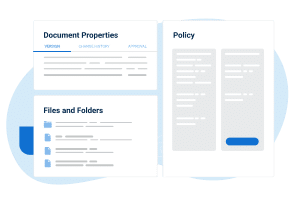In life they say that there is no substitute for experience, and dealing with an ISO 14001 certification audit of your Environmental Management System (EMS) is no different. Before we begin, read the article Deciding which procedures to document in the EMS if you need to know what procedures you need to document. If you need to know how to define the role of the management representative, you can find out in the following article: What is the role of the Management Representative?. You may have considered your environmental aspects, along with regional legislation and how you apply it. You will also have established objectives and looked at resources, training, and responsibilities. To be ready for the audit, you will have had to comply with, and in many cases provide evidence of your conformity with each of the clauses of the 14001 standard, working carefully through each part. Technically, you may feel you are ready, but you have that feeling there must be something you have forgotten. So, the parameters of the standard aside, what questions might the auditor actually ask you? And are you ready for them?
Preparing for questions by the auditor
Most of the ISO 14001 standard, like all of the rest of the ISO standard family, is very specific and precise. Generally, the standard tells you exactly what you have to comply with, and for the most part what you have to do to comply, but in my experience some of the most telling questions will be asked by the auditor himself. The standard talks of the “top management’s commitment to comply with legislation and other requirements, to prevent pollution and to continually improve.” The auditor will almost certainly ask why your organization is pursuing the accreditation. Hopefully, your organization wants ISO 14001 to protect the environment for future generations and improve the environmental performance of your supply chain (see this article to learn more about supply chain: Driving Your Supply Chain to ISO 14001 Compliance), and help satisfy your customers in the most environmentally efficient way possible. If the real reason is that you seek accreditation as a result of pressure by a customer, or you cannot enter a tendering process without ISO 14001, then that is not what your auditor will want to hear.
What, more questions?
The forthcoming ISO 14001:2015 standard will place extra emphasis on the commitment of top management to the EMS and its ability to deliver the set objectives. Being able to show evidence of your Management Review and its outputs and improvement measures will be required, but it is highly unlikely that this will be enough for a good auditor – he will want to speak to your management team. Your senior team will need to illustrate that they are well informed, have a strategy for the EMS, and are prepared to show commitment to ensure the correct risk management and corrective actions are undertaken, thereby ensuring that continual improvement can be achieved. It will pay to remember that your ISO 14001 certification audit is not only a paper exercise, but you will be judged on what you say and the knowledge that you show.
Short term and long term, that is the question
In days past, an ISO 14001 auditor was primarily interested in how you dealt with internal issues – how you reduced your carbon footprint, utility bills, and associated environmental impacts. As times have changed, auditors are equally (if not more) interested in the wider impact on the environment your performance – and your products – can have. If you can provide evidence that your product seeks to reduce the environmental impact when compared to its competition in the same class or category, then you have a major “selling point” with your auditor as well as your customer. Being able to demonstrate that an exponential sale of your efficient product could provide a tangible environmental effect to the market is the real benefit of administrating a company EMS efficiently. Evidencing this to your auditor will create the positive impression that your organization is working to bring an environmentally positive product range to the consumer, for the ongoing benefit of the marketplace and the environment. Ironically, this will no doubt help you to avoid some questions from the auditor!
Deeds, actions, and questions
In summary, to prove to an auditor your organization can pass an ISO 14001 certification audit, you must do two things. You must prove you comply with every clause and salient point of the standard, whether the current 2004 or forthcoming 2015 version, and secondly you must demonstrate by the knowledge of your team that you understand the ethos behind the standard. As ever, don’t make anything up for the benefit of the auditor, but be honest and truthful, answering the questions as best you can. If you don’t know the answer, tell him you will find out. However, display a positive attitude, have some great material, and be mindful that you want to demonstrate the positive environmental impact that your organization and products have. Prepare for the probing questions as well as you prepare for developing the EMS itself. Good luck!
To implement ISO 14001 easily and efficiently, use our ISO 14001 Premium Documentation Toolkit that provides step-by-step guidance and all documents for full ISO 14001 compliance.

 John Nolan
John Nolan 



